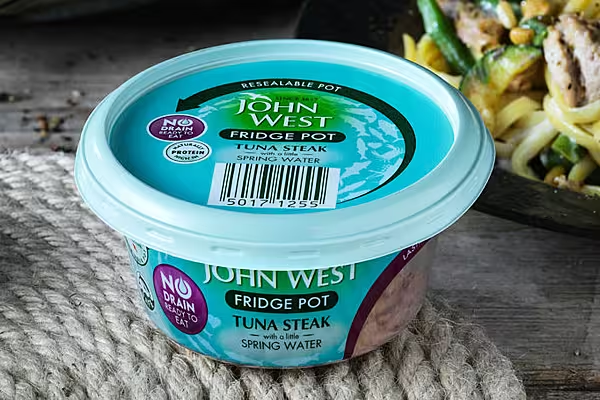The amount of money European consumers spent on every day items, like food, drinks and toiletries rose by just 0.2% in the first quarter of 2017, according to a study by research firm Nielsen.
The study revealed that this is the lowest level of growth for the last eight years. Nielsen said that the timing of Easter negatively affected year-on-year comparisons.
Nielsen's data on grocery retailers across 21 European countries shows that this 0.2% year-on-year increase in takings at the tills for fast-moving consumer goods (FMCGs) reflected a 0.9% increase in the prices shoppers paid but a -0.7% fall in the volume of items they bought.
Olivier Deschamps, Senior Vice President Retailer Services Europe said, “The price inflation figure is what’s important, the low overall sales growth and volume decline is purely a function of the Easter timing.
“The 0.9% growth in prices paid by shoppers remained stable compared to the 1% across 2016, which indicates there’s little inflationary pressure across the European grocery market.”
Quarter 1 Performances
The highest year-on-year growth in terms of takings at the till was in Turkey, which saw a rise of 11.6%. However, its closest competitors can’t really be considered close at all. Slovakia, the second highest, saw a 3.9% rise, followed by Hungary, which saw a 3.4% rise.
Greece had one of the biggest declines, -7.3% in fact. Sales in Greece have been negative since the start of 2016, showing continued economic challenges and a fall in GDP.
In terms of the 'big five' western European markets, Spain was the strongest, with a growth rate of 2.2%, followed by Italy, which rose by 0.7%. The UK and Germany were the lowest, with a decrease of 1.5%, which is also the third lowest among all 21 countries.
Deschamps added, “Most of the 'Big 5' Western European countries continue to have low growth, particularly Germany and the UK, while the strongest momentum continues to be in Eastern Europe, Portugal and Spain.
“In the UK, although inflation returned to the economy overall, the intense supermarket price war has held back grocery inflation as people continue to shop around for savings, visiting more stores more often and spending less on bigger baskets. The consumer mind-set will inevitably move towards uncertainty as Brexit gains momentum but there hasn’t yet been any dramatic change in grocery purchasing behaviour so far this year.”
© 2017 European Supermarket Magazine – your source for the latest retail news. Article by Aidan O’Sullivan. Click subscribe to sign up to ESM: The European Supermarket Magazine.














